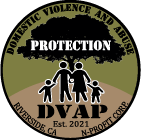Domestic violence and substance abuse often intertwine, creating a complex and harmful cycle that affects survivors, abusers, and their families. Understanding the connection between addiction and intimate partner abuse is essential to breaking this pattern and fostering healing. For survivors, navigating these challenges can feel overwhelming, especially when compounded by co-occurring trauma. This article sheds light on the intersection of domestic violence and addiction while offering supportive, nonjudgmental guidance for those impacted.
How Substance Abuse Can Be Both a Cause and a Consequence of Domestic Violence
The relationship between substance abuse and domestic violence is frequently bidirectional. On one hand, individuals who abuse drugs or alcohol may act more aggressively due to impaired judgment or emotional volatility, increasing the likelihood of abusive behaviors. On the other hand, survivors of domestic violence often turn to substances as a coping mechanism to numb the pain of physical, psychological, or emotional trauma.
For some survivors, the use of drugs or alcohol can initially appear to offer relief. Over time, however, this cycle of substance abuse may escalate, leading to further harm and dependency. It’s crucial to recognize that substance abuse does not excuse abusive behavior, nor does a survivor’s use of substances lessen the reality of the abuse they experience.
The Psychological Toll of Trauma and Its Link to Addiction
Experiencing domestic violence leaves deep psychological scars, including anxiety, depression, and post-traumatic stress disorder (PTSD). Trauma plays a key role in the development of addiction, as some individuals turn to substances to manage overwhelming feelings of fear, shame, or hopelessness. This overwhelming burden, known as “co-occurring trauma,” often requires specialized care to address both substance abuse and the underlying emotional wounds caused by violence.
For survivors, breaking free from addiction and abuse requires addressing these intertwined issues simultaneously. Healing can feel like an uphill battle, but an approach grounded in patience, self-compassion, and professional support is essential for recovery.
Common Misconceptions That Prevent People from Seeking Help
Many survivors face stigma, fear, and misunderstanding when grappling with both domestic violence and substance abuse. One harmful misconception is the belief that survivors who use substances are responsible for the abuse they endure. This false narrative can deter survivors from seeking the support they need out of shame or fear of blame.
Another misconception is that addiction must be resolved before addressing the abuse itself. However, separating these two interconnected issues often creates further barriers to recovery. Trauma-informed, integrated care ensures that both challenges are acknowledged and addressed in concert.
The Importance of Trauma-Informed, Integrated Care for Dual Recovery
Trauma-informed care is critical for survivors facing the dual challenges of domestic violence and addiction. This specialized approach prioritizes safety, empowerment, and respect, aiming to create a supportive environment where survivors feel heard and valued. Integrated care, which addresses both substance abuse recovery for survivors and the trauma of domestic violence, offers the best path to long-term healing.
Dual diagnosis support programs specifically target the intertwined nature of addiction and trauma, providing tailored therapies and resources. Survivors who have access to these services report better outcomes, as comprehensive care enables them to address multiple layers of their experience.
Resources in Riverside and California for Survivors Facing Both Issues
For survivors in Riverside and throughout California, there are many resources available to support dual recovery. Local organizations and hotlines offer confidential support, counseling, and shelter for those navigating domestic violence and addiction. Programs such as substance abuse recovery for survivors and trauma-informed care centers help individuals regain control of their lives.
Here are some resources to consider:
- National Domestic Violence Hotline (800-799-7233): Available 24/7 for confidential support.
- California Partnership to End Domestic Violence provides state-wide advocacy assistance.
- Local substance abuse programs in Riverside can connect survivors with dual diagnosis support and rehabilitation services.
Are You Experiencing Domestic Violence or Abuse? DVAP Is Here To Help
Domestic Violence and Abuse Protection, Inc. is a non-profit organization committed to protecting the victims of domestic abuse. When restraining orders are not enough, we are there to provide the determined protection you deserve. We are located at 3900 Orange St., Riverside, CA. Call us at (951)-275-8301 (24 hours). Alternatively, you can email us at admin@dvapriverside.org.
Help is available. You don’t have to face these challenges alone.






